Do Bedrooms Have to Have Windows? (Cover all the Reasons)
Unmasking Bedroom Window Regulations
Let’s delve into an issue that raises quite a few eyebrows and much curiosity. Do bedrooms have to have windows? Simply put, it’s a “Yes” for most regions. However, let’s unmask the intriguing nuances behind this seemingly straightforward answer.
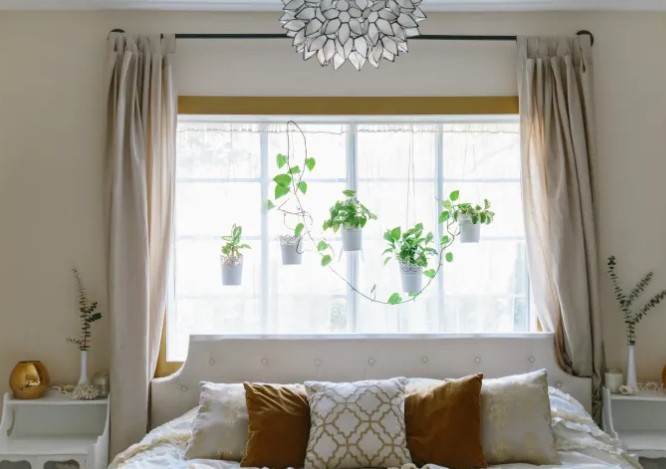
Regulations for bedroom windows often depend on local building codes, safety measures, and the need for natural light and ventilation. Your geographic location, local building ordinances, and the room’s purpose (whether it’s a primary bedroom, secondary bedroom, or basement bedroom) may impact the specific requirements.
Bedroom Ventilation Requirements: The Breath of Life
The importance of a window in a bedroom cannot be overstated. Windows play a pivotal role in providing adequate ventilation. Building codes worldwide, like the International Residential Code (IRC), endorse the crucial role of windows for ventilation. According to the IRC, a bedroom must have a window that can open to a minimum width of 4 inches.
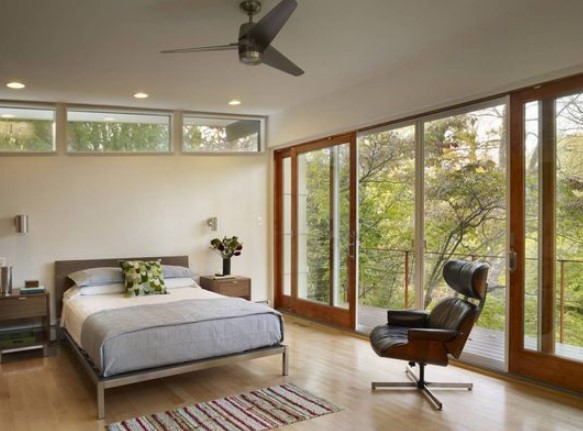
Ventilation isn’t merely about keeping the room fresh. It’s about ensuring the safety and wellbeing of the inhabitants by reducing indoor pollutants, controlling humidity, and introducing outside air to dilute airborne contaminants.
The Egress Window Requirements: An Escape Route
Bedroom windows serve as a vital escape route during emergencies, especially fires. Egress windows, as they’re often referred to, are mandated by most local building codes for bedrooms.
IRC specifies that an egress window must be at least 5.7 square feet, no higher than 44 inches from the floor, with a minimum height of 24 inches and a minimum width of 20 inches. These dimensions ensure adults and children alike can escape or be rescued during emergencies.
For basement bedrooms, the regulations are stricter, given the potential risk of being trapped underground during a disaster. In most jurisdictions, basement bedrooms must have two means of exit – a door and an egress window.
Natural Light in Bedrooms: The Sunshine Effect
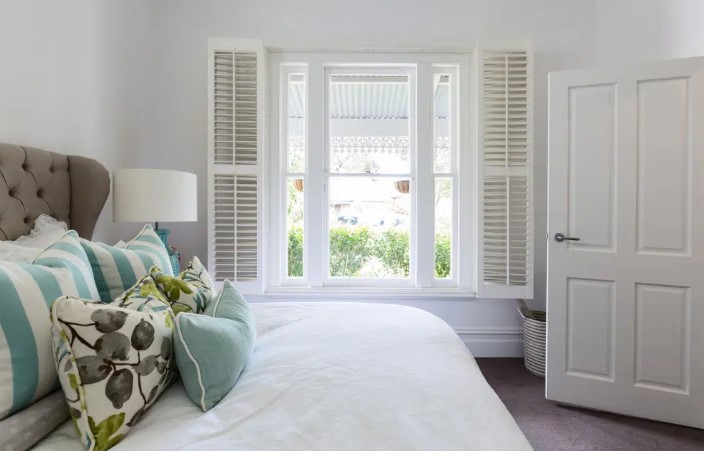
There’s something magical about the morning sunlight streaming into your bedroom. Beyond aesthetics, natural light is critical for our wellbeing.
Scientific studies have linked exposure to natural light to improved mood, enhanced morale, less fatigue, and reduced eye strain. Its role in regulating our circadian rhythm – our internal body clock – is well-established.
Bedrooms without windows can lack this vital component, potentially impacting the room’s ambiance and the occupant’s wellbeing.
Bedroom Window Size Regulations: Bigger the Better?
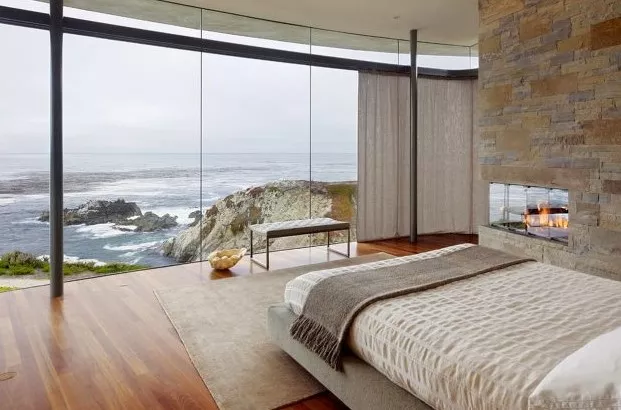
One may wonder, does size matter when it comes to bedroom windows? In terms of building codes, yes.
Building codes often dictate a minimum window size for bedrooms, ensuring enough light and ventilation. The IRC states that the window size must be a minimum of 8% of the floor area for light and 4% for ventilation.
Addressing the Windowless Bedrooms Conundrum
What if you’re faced with a room sans windows? Is it still a bedroom? Legally, a bedroom must have at least one window. However, you can still use a windowless room for other purposes like a study, gym, or home theater.
A room without a window can still be functional and comfortable. Consider air purifiers, humidifiers, or HVAC systems to handle ventilation. And for lighting? Artificial sources can mimic natural light quite effectively.
Bedroom Window Safety: Guarding Your Fortress
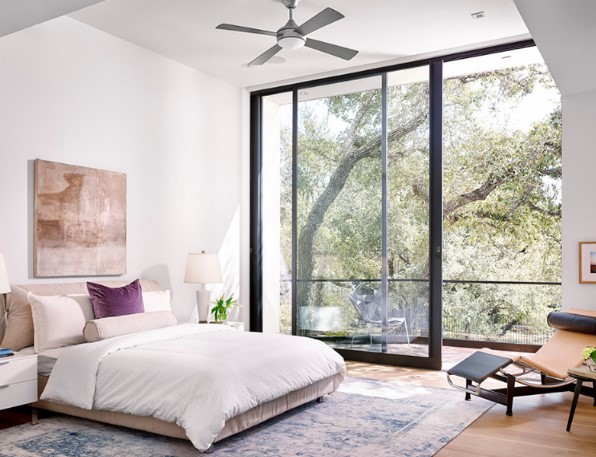
Windows bring light, air, and a sense of openness to a bedroom. Yet, they can also present safety issues, especially for homes with young children or pets. Window guards and safety netting can help prevent accidental falls, while locking mechanisms can stop unwanted intrusions.
In areas prone to natural disasters, safety norms often demand hurricane-proof or earthquake-resistant windows.
Bedroom Window Building Standards: A Compelling Blueprint
When planning a bedroom, be it in a new home or a remodel, understanding the local bedroom window building standards is crucial. These guidelines ensure your bedroom is not just comfortable and beautiful but also safe and legal. Consult with your architect or local council to ensure compliance with these standards.
Window Styles: Marrying Function and Aesthetics
The type of window installed in your bedroom can significantly affect the functionality and aesthetics of the room. Here are a few popular window styles:
Double-Hung Windows: These traditional windows feature two sashes that move vertically, providing excellent ventilation options.
Casement Windows: Operated with a crank, these windows open outwards, offering unobstructed views and ample ventilation.
Sliding Windows: Easy to operate, these windows open horizontally, allowing plenty of light and air.
Bay or Bow Windows: These window styles can add space to your bedroom, creating a cozy nook while allowing a large amount of light.
Remember, the window style should complement the overall design of your home and meet the bedroom’s requirements for light, ventilation, and safety.
Importance of Window Placement
Just as important as the window style is its placement. The window should be positioned to optimize natural light throughout the day, with a focus on morning sunlight which helps maintain our natural circadian rhythm. Window placement also plays a crucial role in cross-ventilation, aiding in maintaining indoor air quality.
From an aesthetic perspective, the placement of your window can help emphasize a beautiful view, create a focal point, or enhance the overall room design.
Window Treatments: Adding Personality to Your Bedroom
Once you’ve decided on the type and placement of your windows, window treatments can provide an additional layer of functionality and style. Curtains, blinds, and shades can offer privacy, light control, and insulation while adding color, texture, and a personal touch to your bedroom.
Blackout curtains or shades can be beneficial for bedrooms, particularly for those who work night shifts or prefer to block out early morning light. On the other hand, sheer curtains can filter and diffuse natural light, softening the overall ambiance of the bedroom.
The Power of Illusion: Solutions for Bedrooms Without Windows
In cases where a bedroom window is not an option, fear not. Creative solutions can help mimic the effect of a window:
Mirrors: A well-placed mirror can create the illusion of a window, reflecting light and making the room feel larger.
Artificial Window: Consider installing backlit curtain walls or lightboxes that mimic the appearance of a window.
Wall Murals: A large-scale mural of a landscape or a serene outdoor setting can create an illusion of a view.
FAQs About Do Bedrooms Have to Have Windows?
- What are the legal requirements for windows in bedrooms?
The legal requirements depend on local regulations, but typically, a bedroom must have at least one window for light, ventilation, and emergency escape.
- Can a bedroom be considered habitable without a window?
In most jurisdictions, a room without a window cannot legally be considered a bedroom due to lack of natural light and ventilation and absence of an escape route during emergencies.
- Are there any alternative solutions for bedrooms without windows?
While such rooms can’t be classified as bedrooms, they can be made functional and comfortable with proper artificial lighting, air purification systems, and ventilation solutions like HVAC systems.
- Are there any specific building codes for bedroom windows?
Yes, building codes usually specify the size, type, and location of bedroom windows. These codes may vary by jurisdiction, so it’s important to check local regulations.
- How can I improve the ventilation and natural light in a windowless bedroom?
Using air purifiers and HVAC systems can help with ventilation, while strategically placed artificial light sources can mimic natural light effectively.
- What is the optimal size for a bedroom window?
The optimal size for a bedroom window can vary based on local building codes, the size of the room, and personal preference. As a general rule, the window size should be at least 8% of the floor area for light and 4% for ventilation.
- How can I enhance privacy in a bedroom with windows?
Window treatments such as curtains, blinds, or shades can help enhance privacy. Additionally, consider frosted or tinted windows, especially if the bedroom is on the ground level.
- Are skylights a good substitute for windows in a bedroom?
Skylights can provide additional natural light, and ventilating skylights can also improve airflow. However, they do not meet the legal requirements for egress in bedrooms due to their typical inaccessibility.
- Does a window’s orientation affect a bedroom’s functionality?
Yes, a window’s orientation can impact the amount of sunlight the room receives. For instance, east-facing windows allow morning sunlight, while west-facing windows let in the afternoon sun.
- Can I use glass doors as a substitute for windows in my bedroom?
Glass doors can certainly allow light and air in, much like a window. However, they must still meet egress requirements for safety. It’s crucial to check with local regulations to ensure compliance.
Also Read: Which One of These Does Not Pose a Risk to Security at a Government Facility
To Sum it Up
The bedroom is a sanctuary, a place where we unwind, dream, and rejuvenate. Windows play a pivotal role in creating an environment that supports our wellbeing by providing natural light, ventilation, and a means of escape in emergencies.
However, if windows aren’t a possibility, innovative solutions can mimic their effect, making the room appear well-lit and airy. Regardless of your situation, remember that your bedroom should serve as a comforting, inviting space that feels uniquely yours. We hope this guide about “Do Bedrooms Have to Have Windows?” prove much beneficial for you.



